Vertical Infrared Heaters: A Comprehensive Guide!
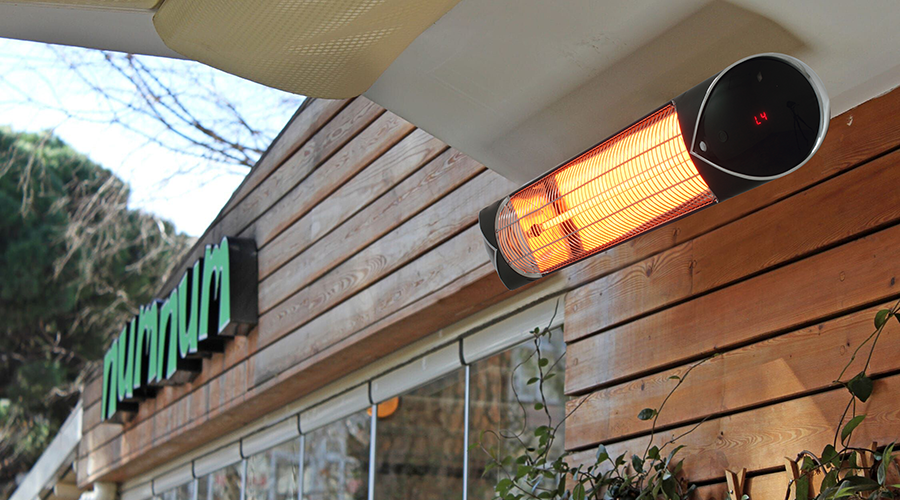
Vertical Infrared Heaters: A Comprehensive Guide!
When it comes to efficient and effective heating solutions, vertical infrared heaters stand out as a top choice for many households and businesses. These innovative devices not only provide warmth but also offer numerous benefits that make them an excellent investment.
Lets look at everything you need to know about vertical infrared heaters, from how they work to their environmental impact and future trends in heating technology.
Introduction to Vertical Infrared Heaters
Vertical infrared heaters are a modern solution designed to provide targeted warmth using infrared radiation. Unlike traditional convection heaters that warm the air around them, infrared heaters emit radiant heat that directly warms objects and people in their path. This method of heating is highly efficient as it reduces energy waste by focusing on specific areas rather than the entire room.
How Vertical Infrared Heaters Work?
Infrared heaters operate by emitting infrared light, which is absorbed by objects and surfaces within its range. This absorption process converts light into heat, effectively warming up the area quickly and efficiently. The vertical design of these heaters allows for a more streamlined installation in various settings such as patios, living rooms, or even commercial spaces.
Energy Efficiency
Infrared technology itself promotes energy conservation due its direct method of warming targets without wasting resources on unused airspace making them environmentally friendly choices especially when combined with renewable energy sources such solar panels reducing carbon footprint significantly over time.
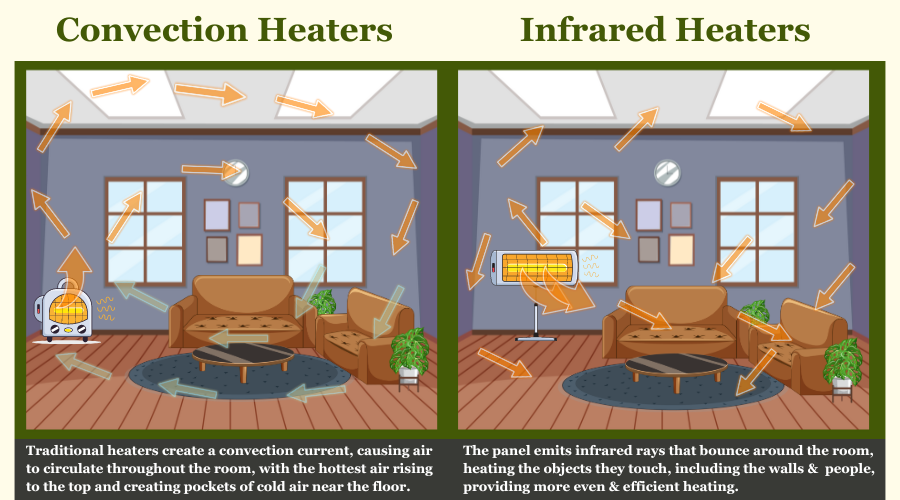
Benefits of using Vertical Infrared Heaters
Energy Efficiency: One of the primary advantages of vertical infrared heaters is their energy efficiency. By directly warming objects instead of air, these heaters use less energy compared to traditional heating systems.
Cost-Effective: Due to their efficiency, you can save on electricity bills while enjoying consistent warmth.
Space-Saving Design: The vertical orientation makes these heaters ideal for spaces with limited floor space.
Instant Heat: Unlike other heating methods that take time to warm up a room, infrared heaters provide immediate warmth upon activation.
Health Benefits: Infrared heat can improve blood circulation and has been known to alleviate symptoms of arthritis and muscle pain.
Comparing Vertical and Horizontal Infrared Heaters
While both vertical and horizontal infrared heaters function similarly by emitting radiant heat:
Vertical Infrared Heaters
Horizontal Infrared Heaters
Ideal for narrow spaces
Easier integration into interior designs
Often used in outdoor settings like patios
Suitable for larger areas
Typically mounted on walls or ceilings
Commonly found in industrial or commercial environments
Key Features to look for in a Vertical Infrared Heater
When choosing a vertical infrared heater:
Wattage and Power Settings: Ensure it has adjustable power settings suitable for your space requirements.
Safety Features: Look for models with overheat protection and tip-over switches.
Portability and Mounting Options: Consider whether you need a portable unit or one that can be securely mounted.
Remote Control and Timers: These features add convenience by allowing easy control over operation times.
Maintenance and Care for Vertical Infrared Heaters
Maintaining your heater ensures longevity:
1. Regularly clean the surface with a soft cloth.
2. Check electrical connections periodically.
3. Avoid placing flammable materials near the heater.
4. Follow manufacturer guidelines regarding usage duration.
Innovative Uses and Applications
Beyond residential uses such patio deck enhancements some innovative applications include:
- Greenhouses where maintaining stable temperatures critical plant growth cycles.
- Warehouses where specific zones require constant temperature regulation.
- Wellness centres utilizing therapeutic benefits far-red spectrum health treatments.
The versatility offered extends potential beyond conventional home use opening new avenues practical applications diverse industries alike.
Environmental Impact Sustainability
Given growing concerns climate change sustainability focus manufacturers turning eco-friendly materials production processes ensure minimal environmental impact during lifecycle products themselves recyclable end life further contributing overall green initiatives globally.
Future Trends Heating Technology
As advancements continue field expect see integration smart technologies enabling seamless automation voice-control capabilities alongside improved efficiencies through enhanced material sciences making future iterations even more compelling investments forward-looking consumers today.
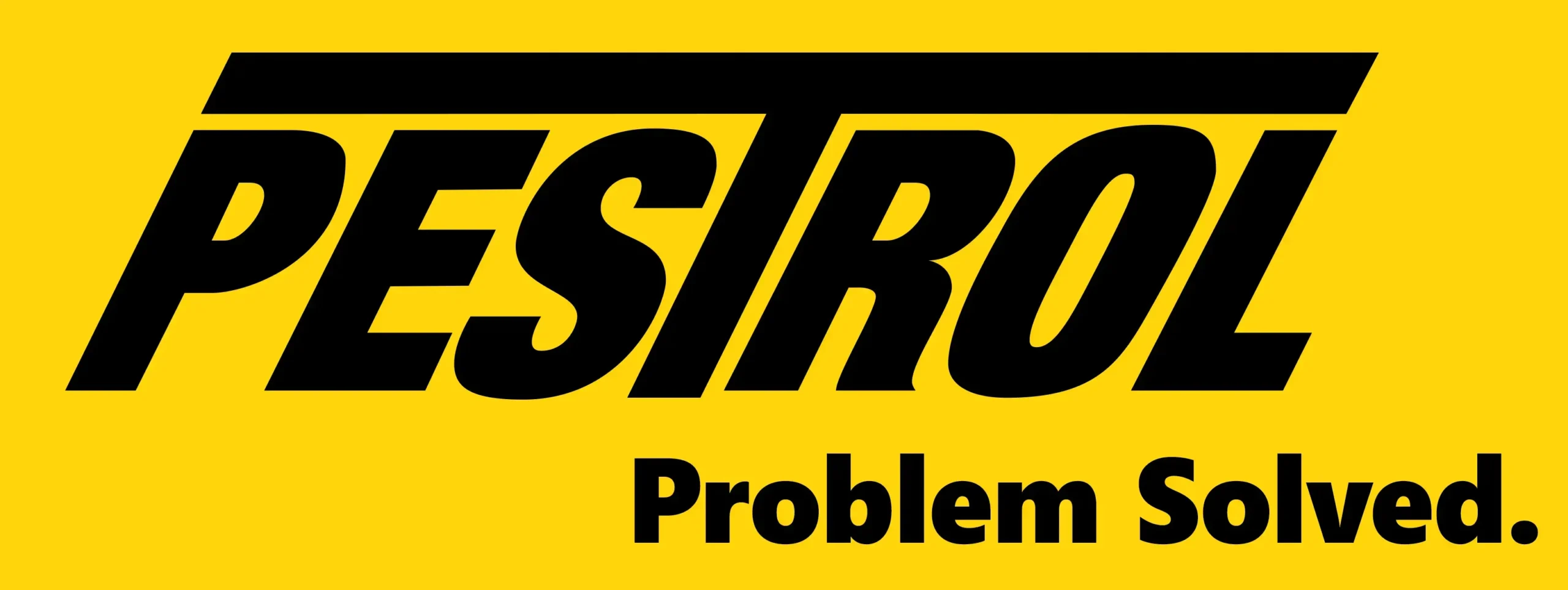




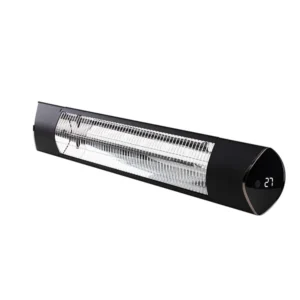
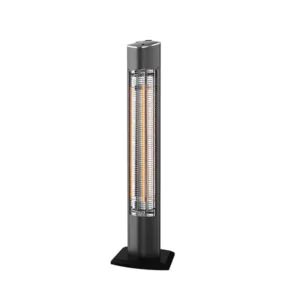
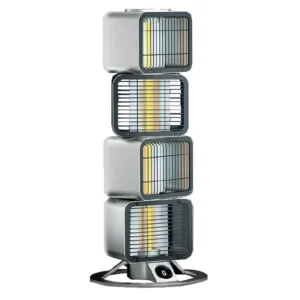
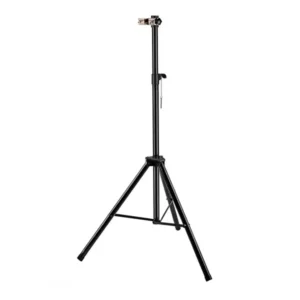
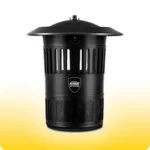 Mosquito Traps
Mosquito Traps